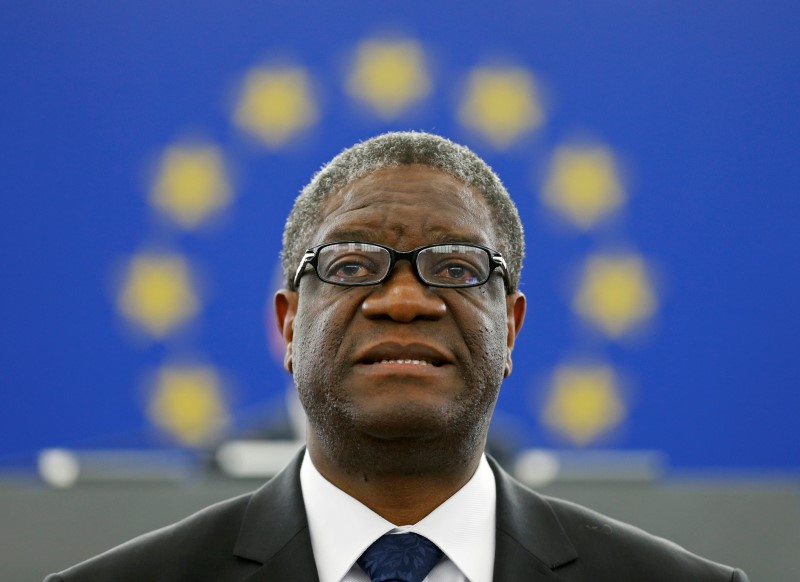By Magdalena Mis
LONDON (Thomson Reuters Foundation) - Nobel-prize nominated Congolese gynecologist Denis Mukwege, who treats war rape victims, was named by TIME magazine on Thursday as one of the 100 most influential people in the world.
The 61-year-old doctor founded the Panzi Hospital in the eastern Democratic Republic of Congo in 1999 to help women and girls who had been raped during the conflict then raging in the country.
"The people on the list, each in their own way, have lessons to teach," TIME editor Nancy Gibbs said in a statement accompanying the release of the 2016 TIME 100.
"One way or another they each embody a breakthrough: they broke the rules, broke the record, broke the silence, broke the boundaries to reveal what we're capable of."
Although the Congo war officially ended in 2003, violence between government troops and rebels, some with outside backing, has persisted, particularly in the east, and rape has repeatedly been used as a weapon of war.
Mukwege's hospital has treated more than 46,000 girls and women with gynecological injuries, about half of them victims of sexual violence.
In 2012 Mukwege escaped unhurt when armed men tried to kill him in one of the most violent parts of the country, but one member of his staff was killed.
He won the Sakharov Prize, Europe's top human rights award, in 2014, and was nominated for the Nobel Peace Prize in the same year. He remains a strong advocate of women's rights in his country.
Among other names on the TIME 100 list, which was put together by TIME editors, are Caitlyn Jenner, who revealed her identity as a transgender woman last year, Chancellor Angela Merkel of Germany, Pope Francis and rock star Bono.
"The influence of this year's TIME 100, to my mind, is that down to the last person, they have the power to make us think. And they are using it," Gibbs said.
